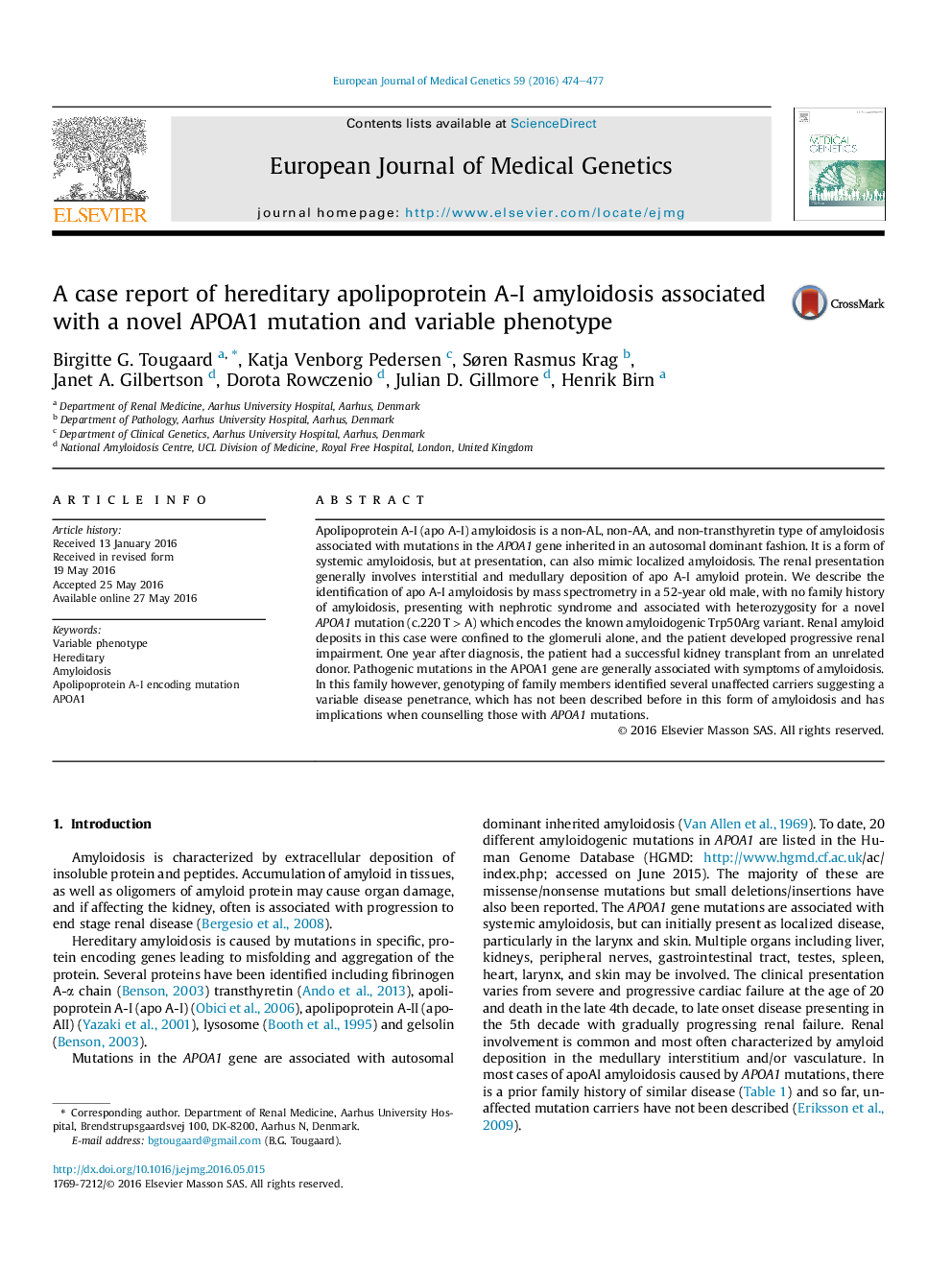| کد مقاله | کد نشریه | سال انتشار | مقاله انگلیسی | نسخه تمام متن |
|---|---|---|---|---|
| 2813655 | 1569466 | 2016 | 4 صفحه PDF | دانلود رایگان |
Apolipoprotein A-I (apo A-I) amyloidosis is a non-AL, non-AA, and non-transthyretin type of amyloidosis associated with mutations in the APOA1 gene inherited in an autosomal dominant fashion. It is a form of systemic amyloidosis, but at presentation, can also mimic localized amyloidosis. The renal presentation generally involves interstitial and medullary deposition of apo A-I amyloid protein. We describe the identification of apo A-I amyloidosis by mass spectrometry in a 52-year old male, with no family history of amyloidosis, presenting with nephrotic syndrome and associated with heterozygosity for a novel APOA1 mutation (c.220 T > A) which encodes the known amyloidogenic Trp50Arg variant. Renal amyloid deposits in this case were confined to the glomeruli alone, and the patient developed progressive renal impairment. One year after diagnosis, the patient had a successful kidney transplant from an unrelated donor. Pathogenic mutations in the APOA1 gene are generally associated with symptoms of amyloidosis. In this family however, genotyping of family members identified several unaffected carriers suggesting a variable disease penetrance, which has not been described before in this form of amyloidosis and has implications when counselling those with APOA1 mutations.
Journal: European Journal of Medical Genetics - Volume 59, Issue 9, September 2016, Pages 474–477
